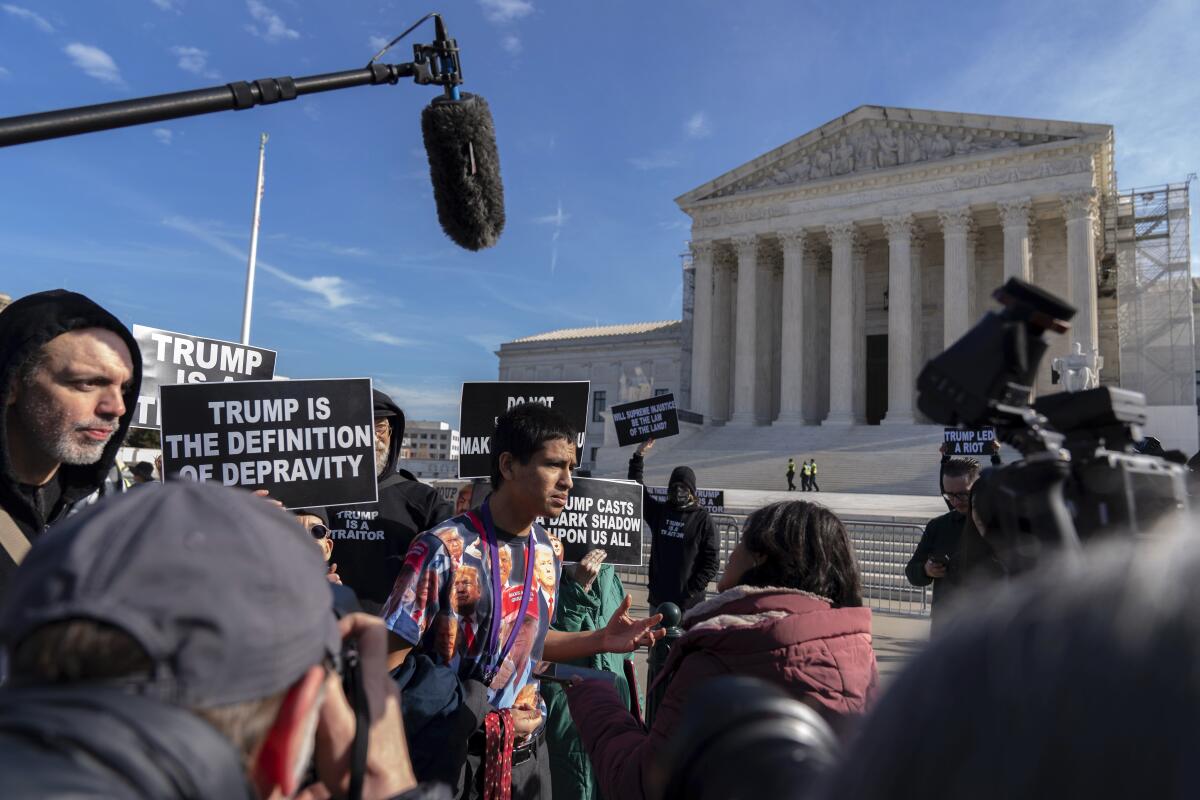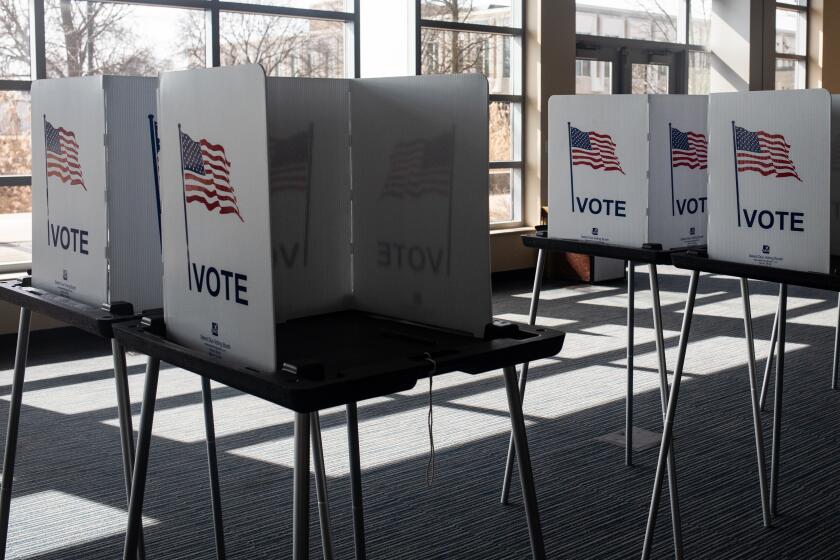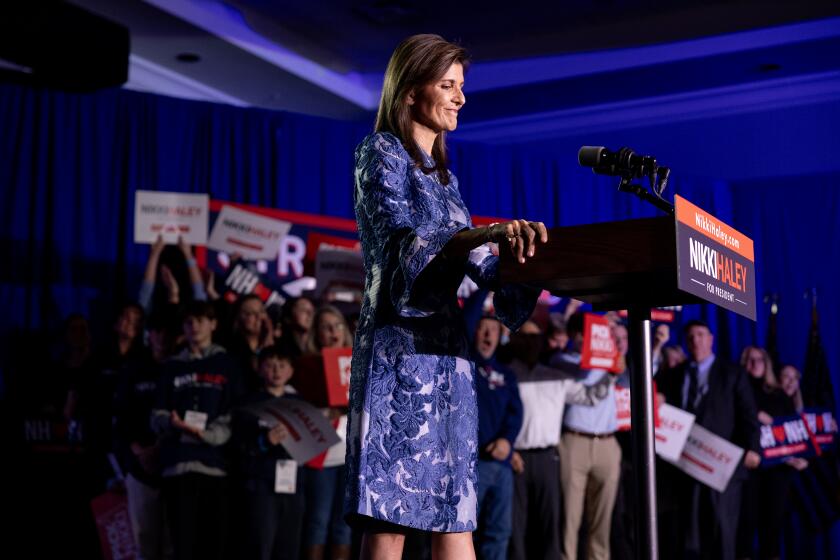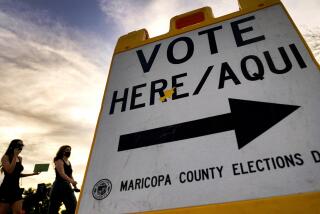Editorial: The Supreme Court was right to keep Trump on the ballot. Now voters should reject him

In ruling that Colorado — and other states — may not bar Donald Trump from the ballot, the Supreme Court has provided necessary clarity about the reach of a once-obscure section of the 14th Amendment aimed at preventing insurrectionists from holding public office.
At a time of paralyzing political polarization, it is notable that the court’s ruling on Monday was supported by all nine justices. A unanimous decision on this highly partisan issue is welcome, though three Democratic appointees complained that the unsigned majority opinion went too far in saying that Congress must act to enforce the insurrection provision.
Justices ignored the calls to take up Trump immunity case quickly. They should at least plan to rule as soon as possible so voters have an answer when they head to the polls in November.
It is now clear that if Trump is to be prevented from returning to the White House, he must be rejected by the voters and denied a majority in the electoral college. Whatever the legal merits of the court’s ruling, its chief consequence is to bolster democracy.
The Colorado Supreme Court effectively held that under the Constitution voters could be denied the right to decide whether Trump is suitable for a second term. Its ruling barred Trump from the state’s Republican primary ballot under Section 3 of the 14th Amendment. That provision says that no person who had sworn an oath to support the Constitution may hold public office if that person “engaged in insurrection or rebellion against the same.”
Getting a courtroom verdict on Trump’s Jan. 6 actions before the election day seems impossible. Which makes verdict at the ballot box crucial.
At oral arguments in this case, Justice Elena Kagan, a Barack Obama appointee, seemed to channel the concerns of several justices when she raised the question of “why a single state should decide who gets to be president of the United States.”
Monday’s unsigned majority opinion picks up on that concern. It says that “state-by-state resolution of the question whether Section 3 bars a particular candidate for president from serving would be quite unlikely to yield a uniform answer consistent with the basic principle that the president. . . represent[s] all the voters in the nation.”
All nine justices signed on to this worry about a “patchwork” result. But the three Democratic appointees and Justice Amy Coney Barrett, a Trump appointee, didn’t endorse another argument in the majority opinion: that Congress must act to authorize application of Section 3 to federal officeholders and candidates. In a separate opinion Justices Sonia Sotomayor, Ketanji Brown Jackson and Kagan wrote that the majority unnecessarily “shuts the door on other potential means of federal enforcement.”
It is ominous that one of the two major parties would nominate such a manifestly unfit demagogue for the presidency. But that is where America finds itself.
This objection isn’t trivial, but it shouldn’t overshadow the agreement of all nine justices on the bottom line that states may not use Section 3 to disqualify presidential candidates. As Barrett observed in a brief opinion, “our differences are far less important than our unanimity: All nine justices agree on the outcome of this case. That is the message Americans should take home.”
The court wouldn’t have to struggle with these issues if Trump, after inspiring a riot at the Capitol with his self-interested claims of election fraud, had slunk out of politics. Officials or aggrieved voters in Colorado, California and other states might not have contemplated it at all if Republican politicians and voters had seen Trump for what he is: a narcissist who nearly destroyed our democracy with his attempts to overthrow the results of the 2020 election.
That alone should disqualify him in voters’ eyes. His own statements since launching his reelection bid make clear that he would return chaos to the Oval Office, fray relations with U.S. allies and exacerbate racial and other divisions.
Neither the Supreme Court nor the Constitution will relieve voters of the responsibility to face facts about his obvious unfitness for another presidential term.
More to Read
A cure for the common opinion
Get thought-provoking perspectives with our weekly newsletter.
You may occasionally receive promotional content from the Los Angeles Times.













